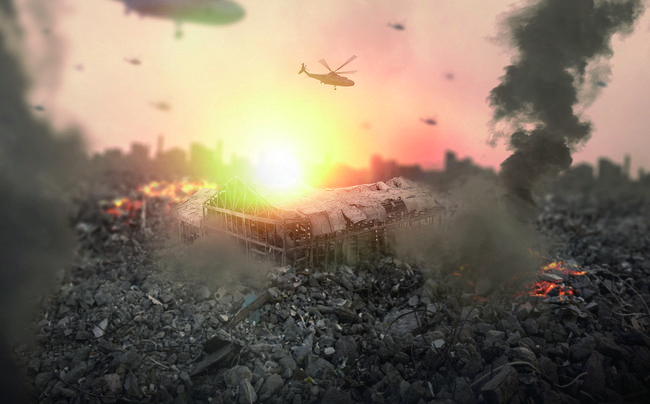
The Russia-Ukraine War began on February 24, 2022, following President of Russia Vladimir Putin’s announcement of a “Special Military Operation” against Ukraine. Since then, the war has continued for over 1,000 days, causing significant casualties, a massive refugee crisis, and has had considerable effects on global society. Pharos will examine the current state of the war, the international reactions from various countries, the direct and indirect situation of the conflict, and its future outlook.
The war between Russia and Ukraine broke out over many complex historical, political, economic, and geopolitical factors. The primary causes can be summarized as follows.
Historical Factors
One of the historical factors is the prolonged state of tension following the collapse of the Soviet Union. After collapsing in 1991, Ukraine became an independent state, but Russia has consistently wanted to keep Ukraine within its sphere of influence. Next is the problem of Crimea. Crimea has had a close relationship with Russia, and in 2014, Russia annexed the region, intensifying the conflict. Although the international community regarded it illegal, ongoing disputes over Crimea have continued.
Economic Factors
Next is the problem of energy. Ukraine is a major gas transit route for Russia to Europe. The control of the energy supplies has been a significant factor of conflict between the two countries. Next is the characteristic of the industrial region of eastern Ukraine. The Donbas region has a large Russian-speaking population, and it is important for industry, so it has been an area of political and economic interest for Russia.
Cultural Factors
Ukraine has identity conflicts between its Russian-speaking and Ukrainian-speaking populations. Russia has taken advantage of this to intervene in Ukraine under the pretext of protecting Russian speakers and its allies. Aggragating these factors, Russia has threatened Ukraine by mobilizing large forces near Ukraine’s borders since the end of 2021. In February 2022, Russia attacked Ukraine under the name of “Special Military Operation”, and sparking a war.
Currently, the main front is focused in eastern and southern Ukraine. Russian forces are intensifying their offensive in the Donbas of eastern Ukraine. In 2024, they captured significant territory in this region, and it is about 6 times the size of they held in 2023. Ukraine is trying a counterattack in the southern regions of Kherson and Zaporizhzhia but is facing strong defense from Russia. This area is strategically important due to its access to the Black Sea and its abundance of energy resources. Both are suffering significant casualties and resource consumption, and the front lines are fixed. Particularly, in the eastern region, the pattern of trench warfare continues.
The Russia-Ukraine war has reverberated through the international community, prompting various nations and organizations to respond from their unique perspectives. The United States and NATO (North Atlantic Treaty Organization) member countries have been providing ongoing military and economic support to Ukraine. The U.S., in particular, has been supplying advanced weapons and imposing economic sanctions to pressure Russia. Western countries have strongly condemned Russia’s military actions, aiming to bolster Ukraine’s defense capabilities while weakening Russia’s ability to sustain the war.
In contrast, North Korea has been strengthening its cooperation with Russia. Reports suggest that North Korea is supplying military equipment such as artillery shells, missiles, and anti-tank rockets. North Korean personnel, disguised as Siberian locals and armed with fake IDs, are allegedly stationed in Russian military units. This is seen as a move to solidify strategic alliances.
International organizations have also taken a firm stance on the war. The UN has passed resolutions condemning Russia’s military actions and urging a cessation of hostilities and peaceful resolution. However, Russia’s status as a permanent member of the Security Council, with veto power limits the possibility of direct military intervention or enforced measures.
As the war drags on, the humanitarian crisis is worsening. The Russia-Ukraine conflict has resulted in significant civilian casualties and the destruction of essential infrastructure like hospitals and schools, deteriorating living conditions. As of January 2023, more than 13.78 million Ukrainians have fled the country, with 5.91 million internally displaced and 7.96 million refugees. (Source: UNHCR, IOM) Neighboring countries such as Poland, Romania, and Hungary are hosting these refugees, while South Korea has welcomed Ukrainian refugees, especially those of Korean descent, in places like Gwangju’s Korean community.
The conflict has also impacted the global economy. Disruptions in Russia’s energy supplies have led to rising oil and natural gas prices. Widespread economic sanctions on Russia have caused shortages of critical raw materials like nickel and palladium. Additionally, Ukraine’s status as a major grain exporter has led to a food crisis in parts of the Middle East and Africa, heavily reliant on Ukrainian exports.
In conclusion, the Russia-Ukraine war has escalated from a bilateral conflict to a global issue. With major cities and infrastructure under attack, the situation is becoming increasingly complex. The international community is attempting to curb Russia’s actions through military support and diplomatic pressure, but the humanitarian toll continues to rise. As civilians suffer and the refugee crisis persists, finding a peaceful resolution is more urgent than ever. Experts suggest that Russia’s intensified offensives, including Ukraine’s acquisition of new weapons, complicate the conflict further. Additionally, there is emerging public support for peace talks within Ukraine, raising the possibility of future peace agreements. The prolonged war has heightened global and humanitarian concerns, making efforts to seek a peaceful resolution more critical than ever.
Editor-in-Chief • CHO SEO YUN • jeoyum@gmail.com
81st Reporter • AN KEUM HYUN • angeumhyun1@gmail.com
- TAG









